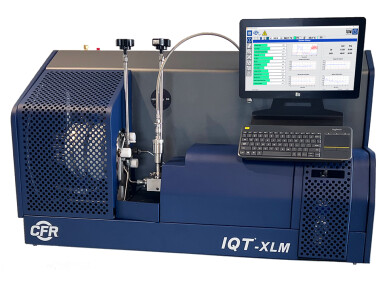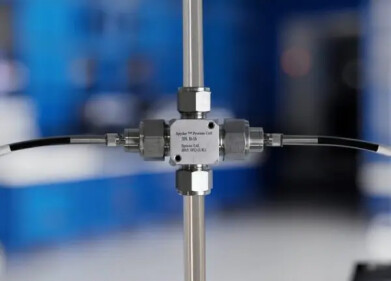Analytical Instrumentation
Solution Against Soot Deposition
Oct 17 2018
A solution against soot deposition? TE Instruments introduces the XPRO combustion tube
Some petrochemical products might combust in an unexpected manner and produce soot while being combusted in an elemental analyser. Samples having other than expected boiling ranges, too large sample volumes, incorrect boat programs or challenging chemical compositions, might contribute to the undesired effect of soot formation. As a result, soot particles could deposit onto the wall of the permeation drier tube, affecting the efficiency to remove water vapor. Eventually, results might become less accurate because of this undesired phenomenon.
TE Instruments has developed a concerted effort, involving the R&D and glass manufacturing departments and the commercial team, a sustainable and reliable solution to overcome this issue: the XPRO combustion tube.
With the XPRO combustion tube, TE Instrument offers a robust option in combination with the XPLORER element analyser series. It reduces down-time and laborious cleaning sessions or expensive replacements. Particularly for end-users like cargo inspectors or refinery laboratories with a varied sample program with complex matrices. For example products with a large distillation range such as gas condensate or refinery streams with an high heavy-end content.
The XPRO combustion tube combines the analytical performance of the existing Collision Flow Tube with an extremely powerful combustion capacity, ensuring a complete and efficient oxidation of petrochemical products. The tube is available with and without boat cooling and therefore can be used in combination with the available sample introduction modules, provided that a normal sample introduction method is used. Also can it can be used in combination with all detector configurations of the XPLORER analyser series.
The Collision Flow Tube remains an excellent choice for standard samples or, when used in combination with solid introduction module, for heavy or solid samples. However, with the XPRO combustion Tube, a user can add, with a marginal extra investment, extended flexibility and robustness.
Its design features three essential functions:
- The established collision flow technique provides a complete and efficient oxidation process.
- The incorporated dual-stage capturing filters protect the downstream flow path against soot deposition.
- The capturing filters are ‘self-cleaning’, they continuously regenerate themselves by the high temperature of 1000°C and the presence of an oxygen flow.
The combustion environment in an XPLORER system is typically set at 1000°C or higher. The exothermic effect during hydrocarbon combustion, fueled by the collision flow technique, might even force the temperatures to go much higher. This creates a very efficient and soot-free combustion. However, soot may be produced due to an unexpected sample composition or unintended instrument setting.
The first filter takes care of the larger particles and the second filter collects the smaller dust particles. The surface area and porosity of the two capturing filters are meticulously defined and quality controlled. The filters are designed to not only capture particulates but also allow an unrestricted full combustion flow to pass. Self-cleaning means no need for human intervention, minimising inspection frequency, replacement interval and system validation after replacement. The dual-stage capturing filters are a user friendly, sustainable and time saving solution.
Digital Edition
PIN 25.5 Oct/Nov 2024
November 2024
Analytical Instrumentation - Picturing Viscosity – How Can a Viscometer or a Rheometer Benefit You? - Sustainable Grease Formulations: Evaluating Key Performance Parameters and Testing Method...
View all digital editions
Events
Dec 03 2024 Dusseldorf, Germany
Dec 08 2024 Anaheim, CA, USA
Turkey & Black Sea Oil and Gas
Dec 11 2024 Istanbul, Turkey
Dec 19 2024 Aurangabad, India
Jan 20 2025 San Diego, CA, USA




















